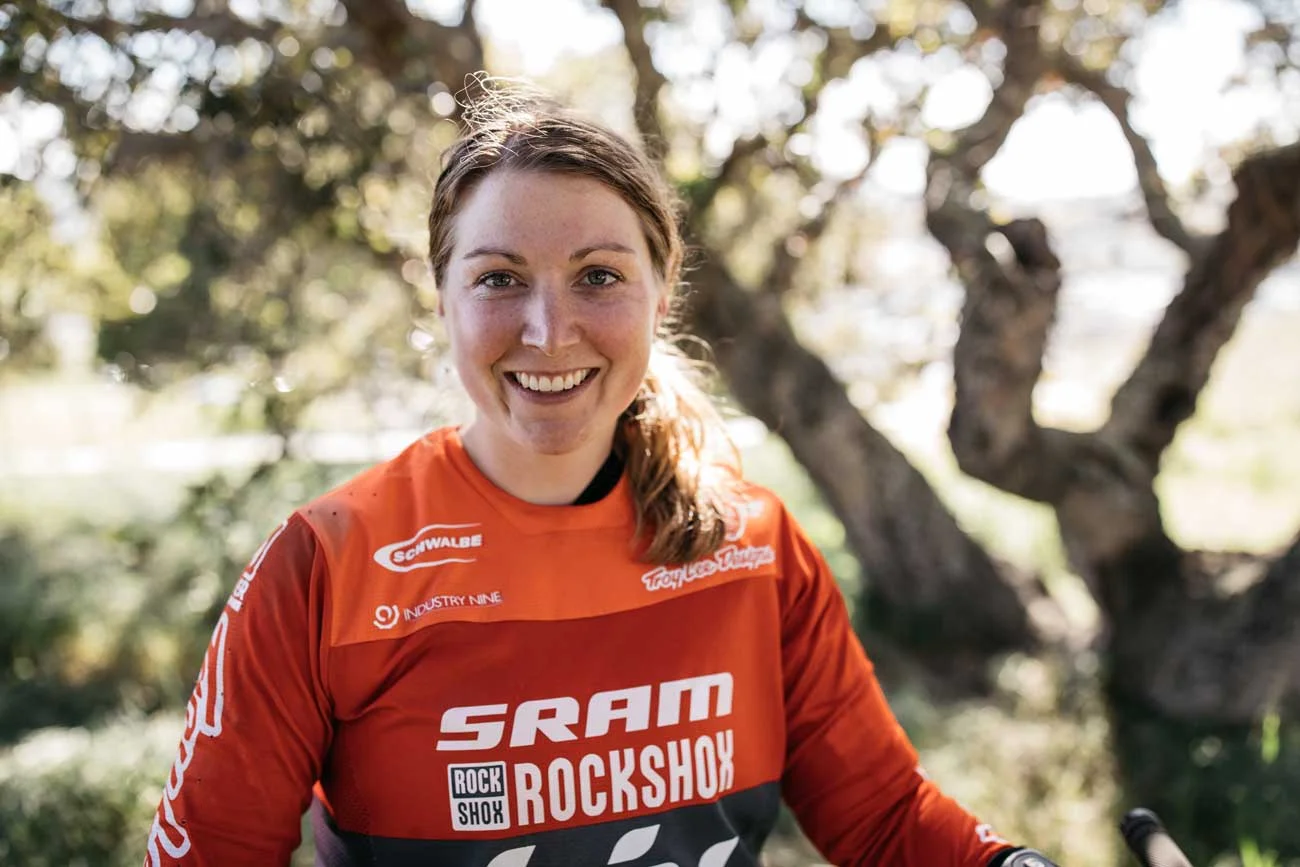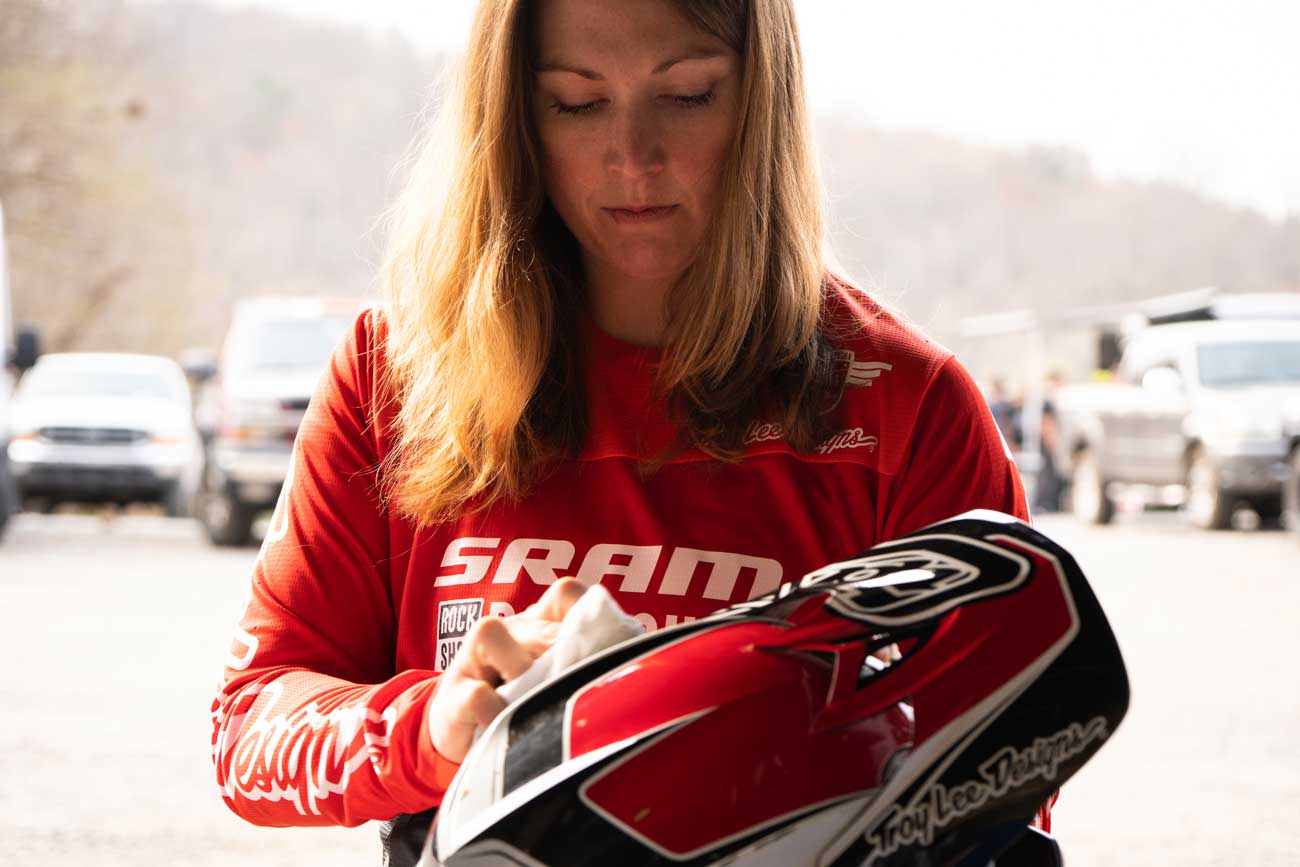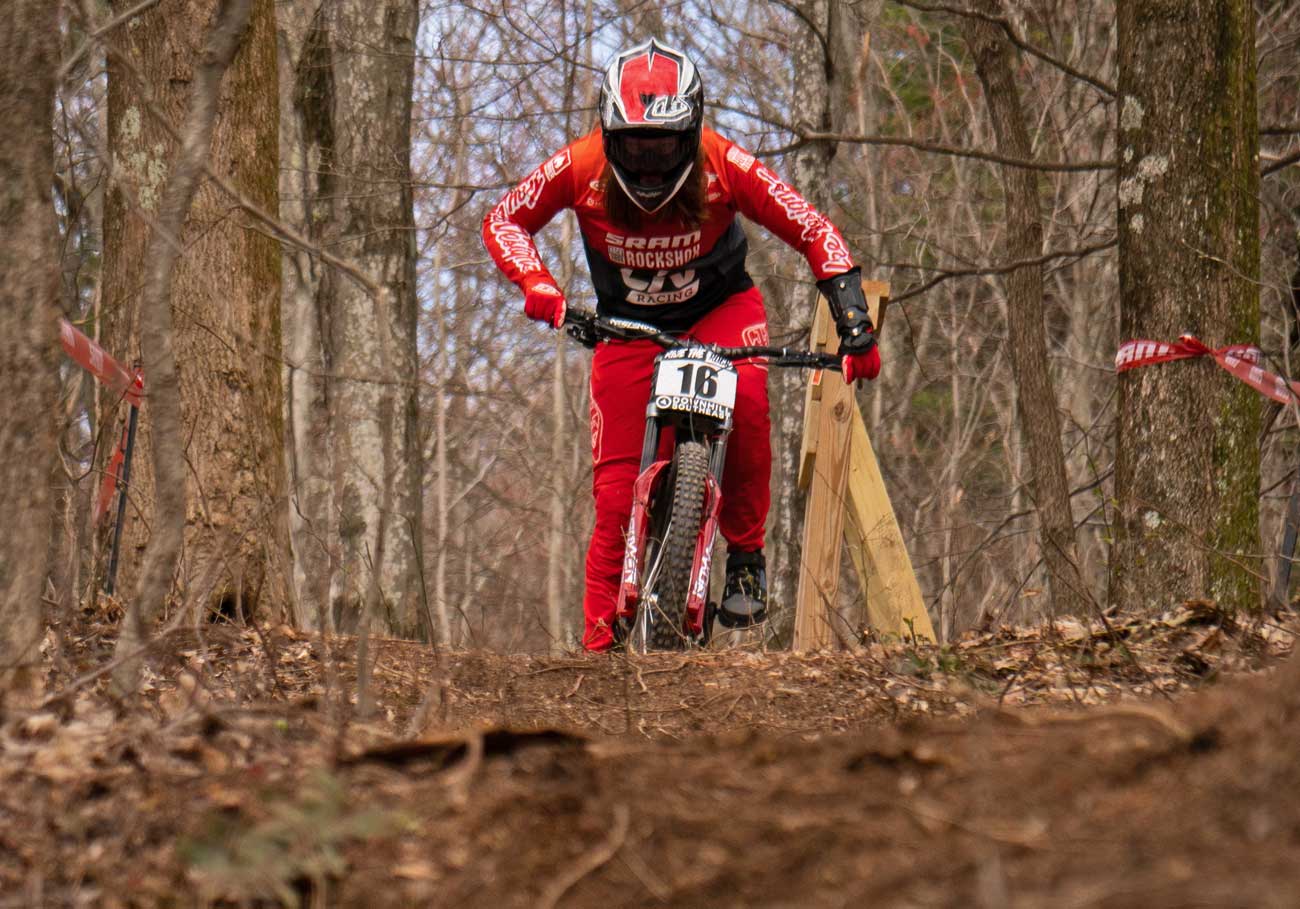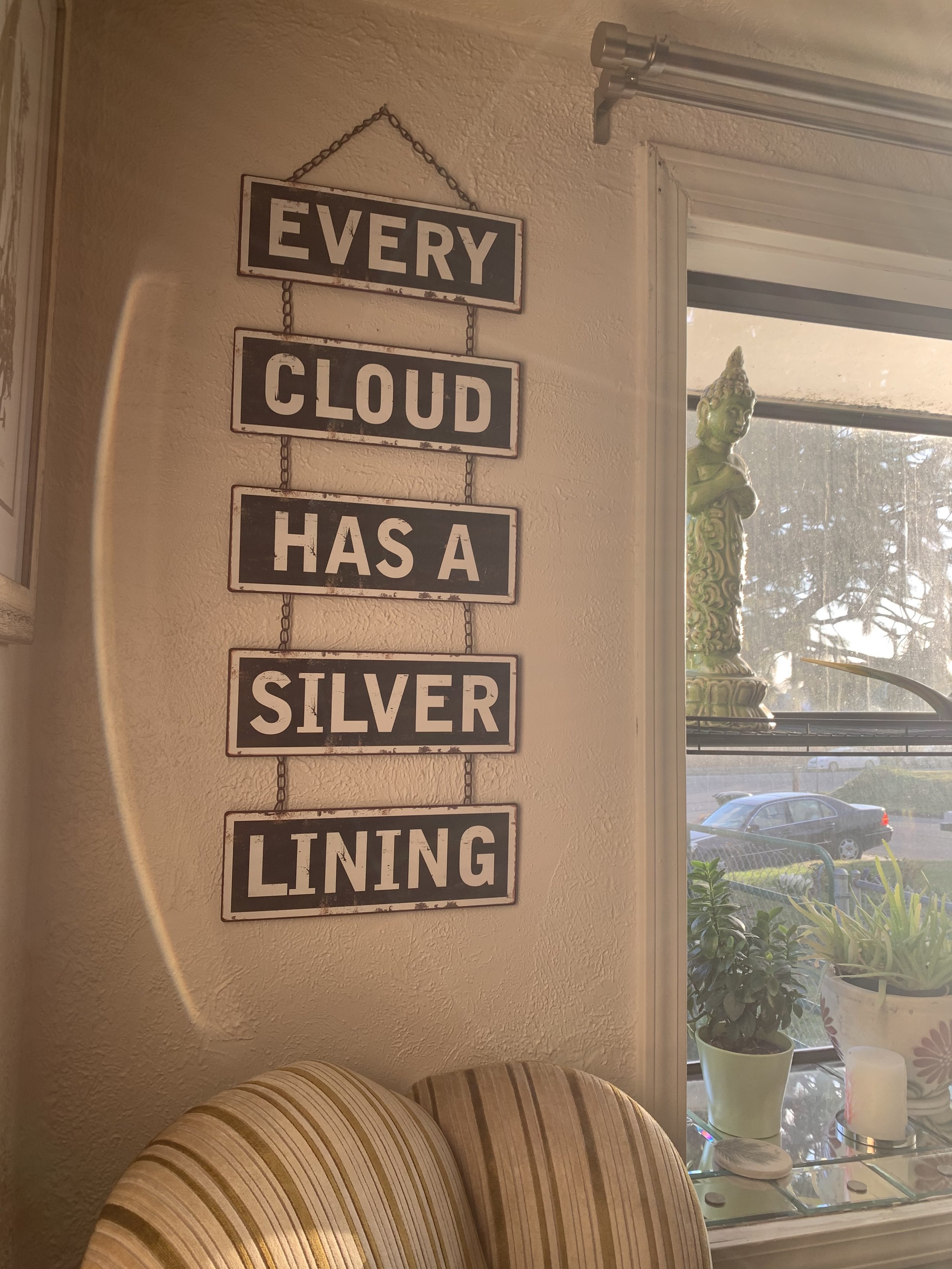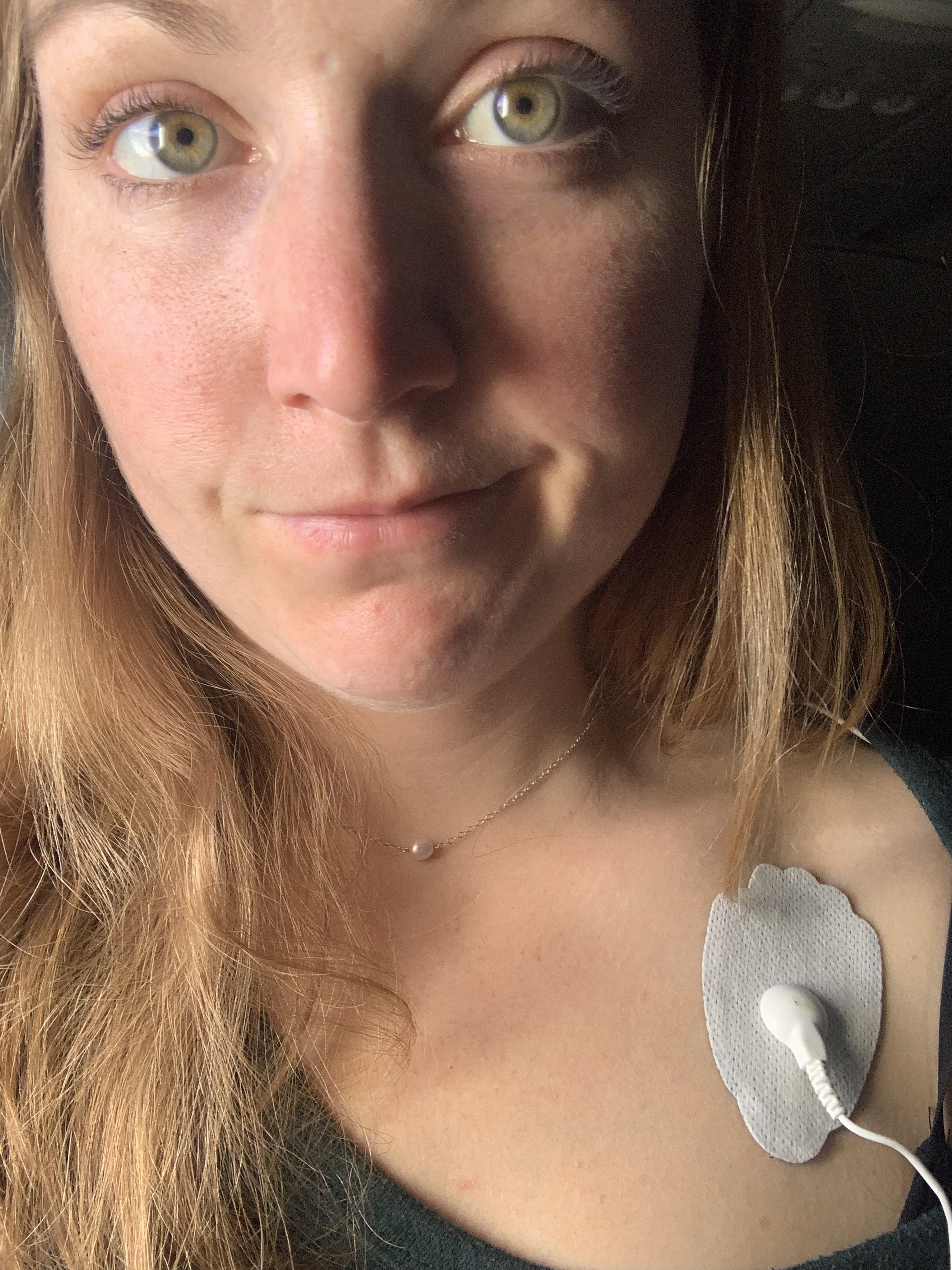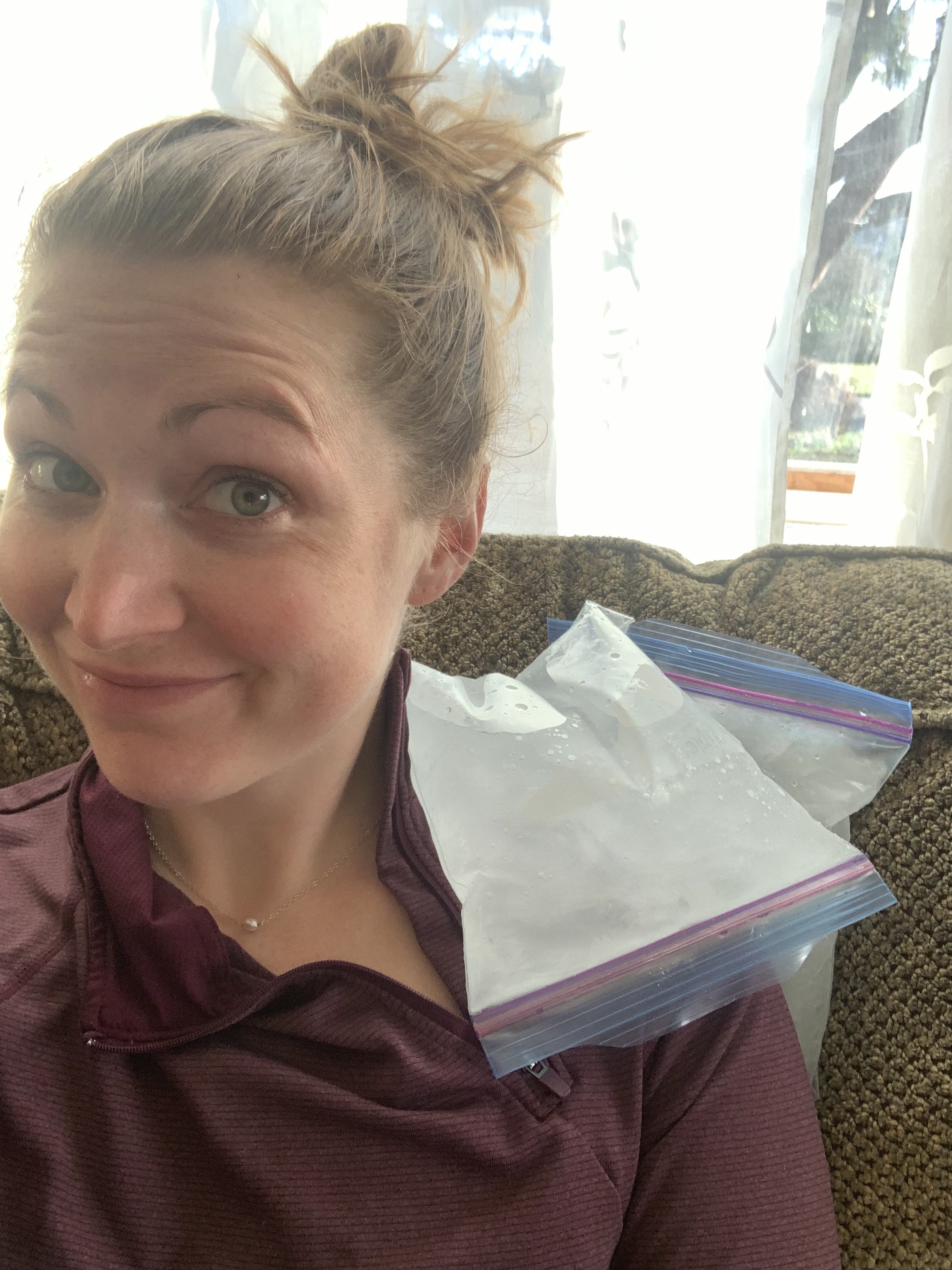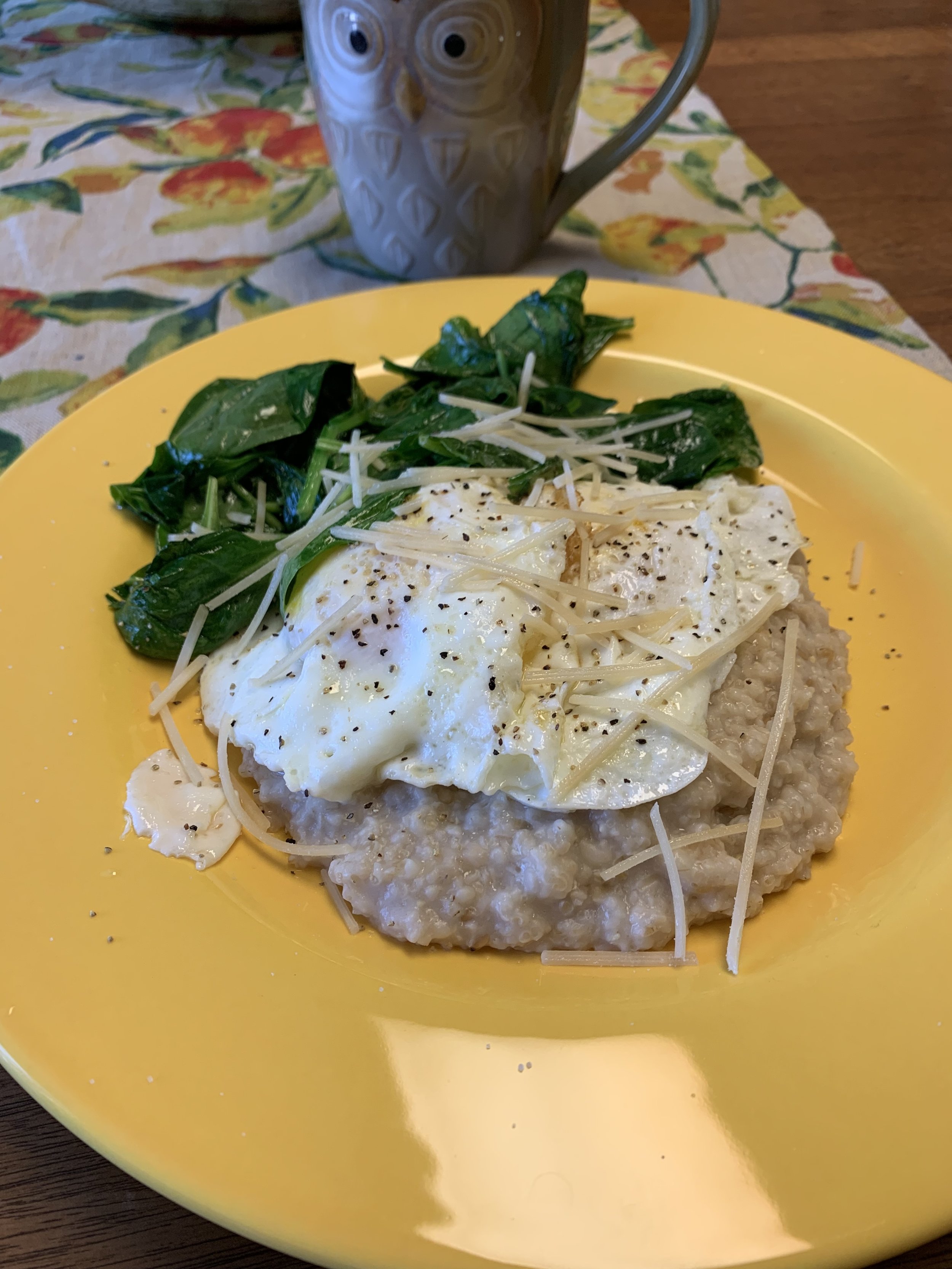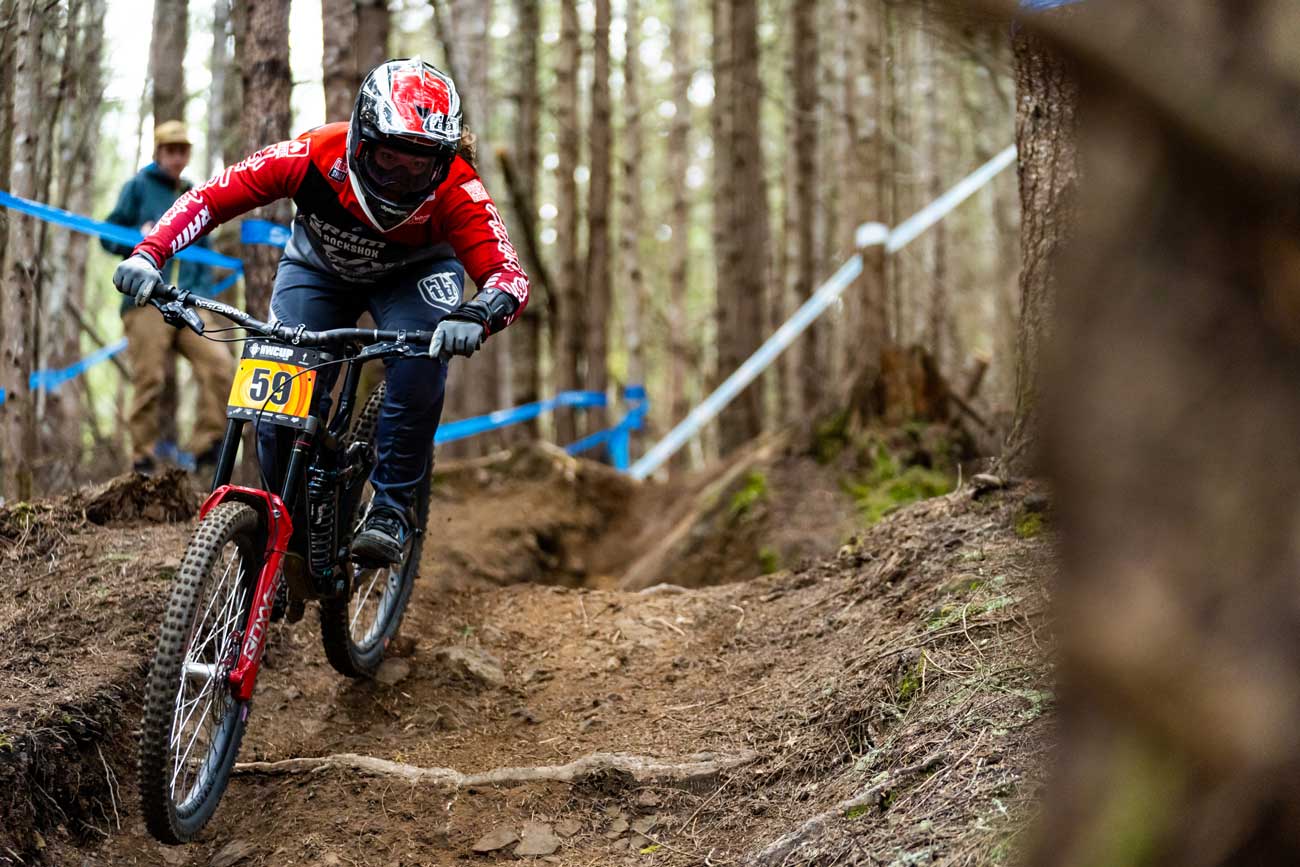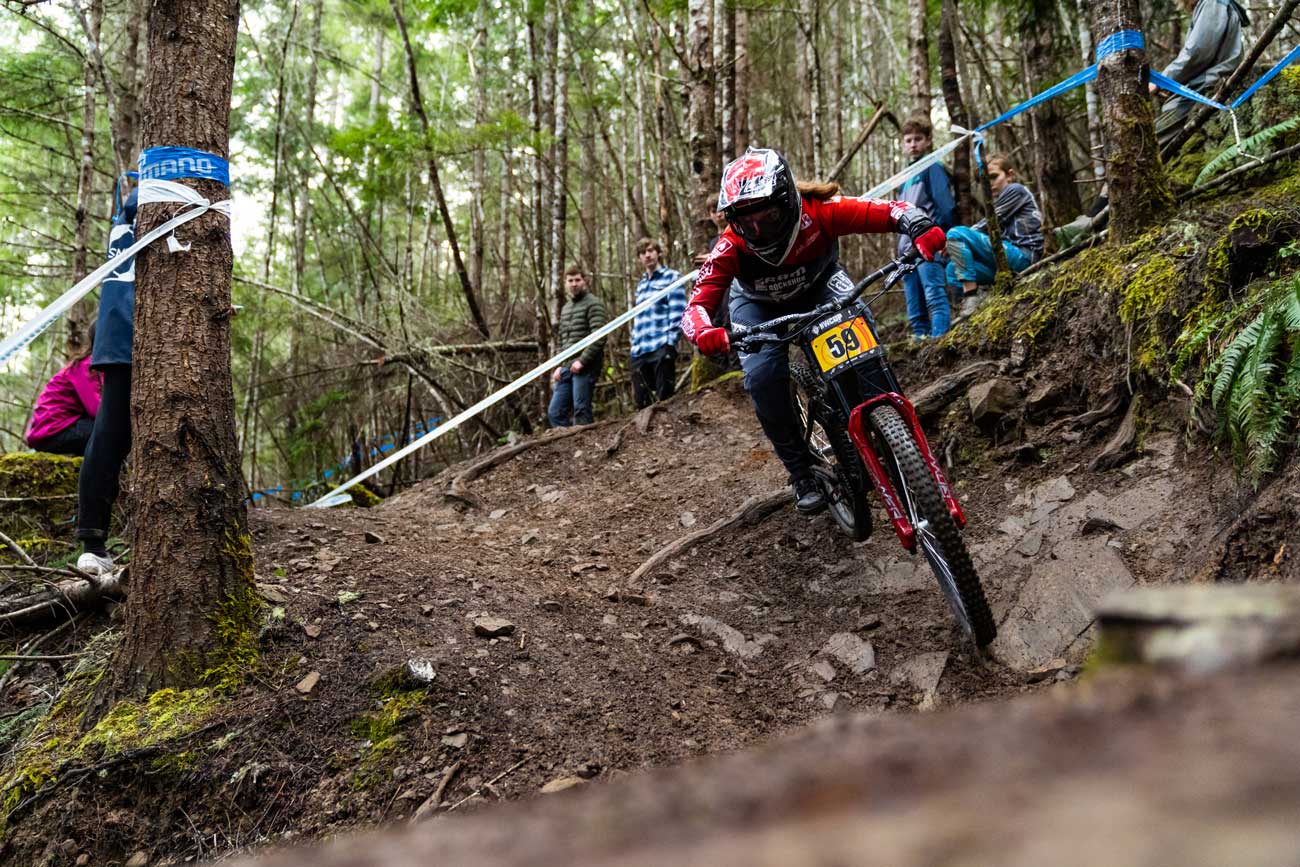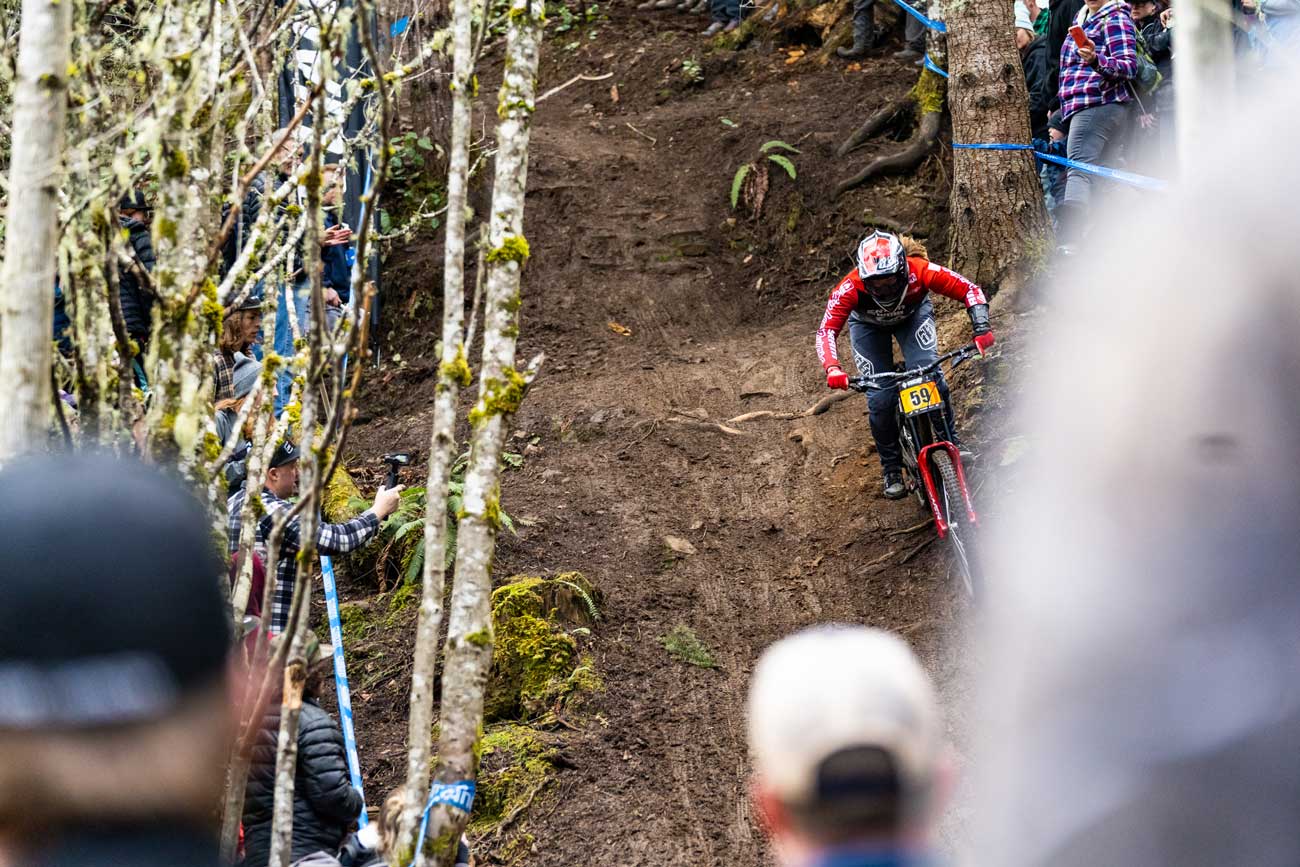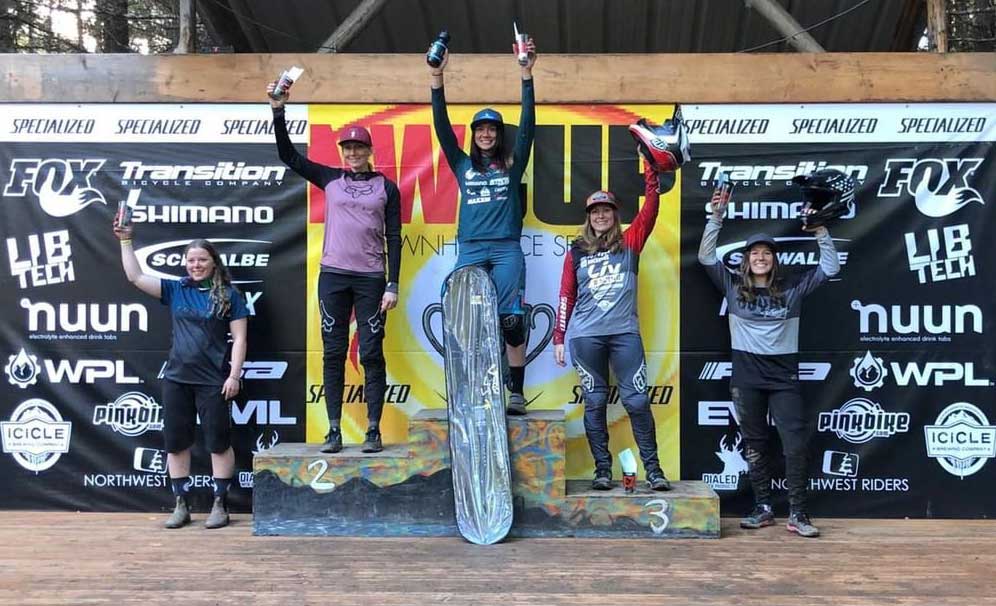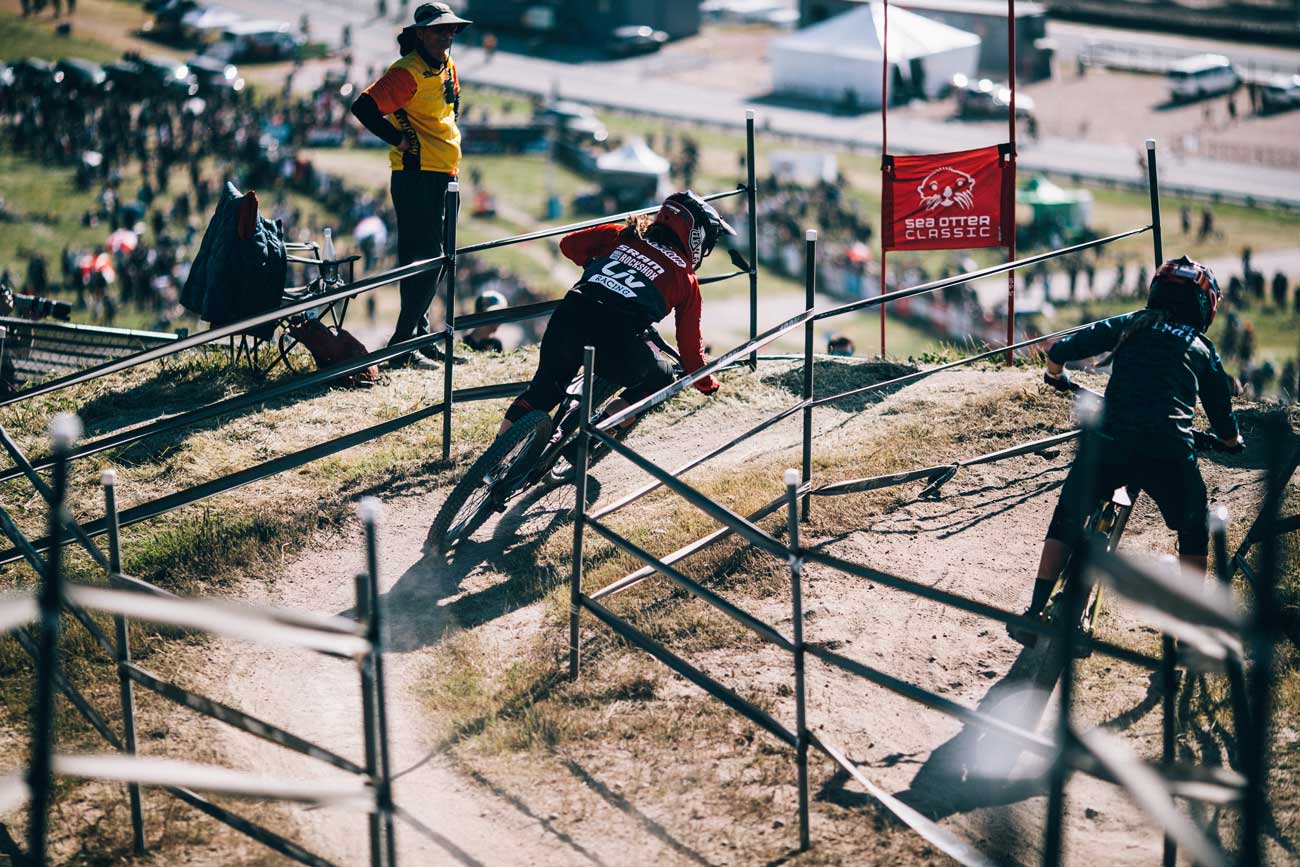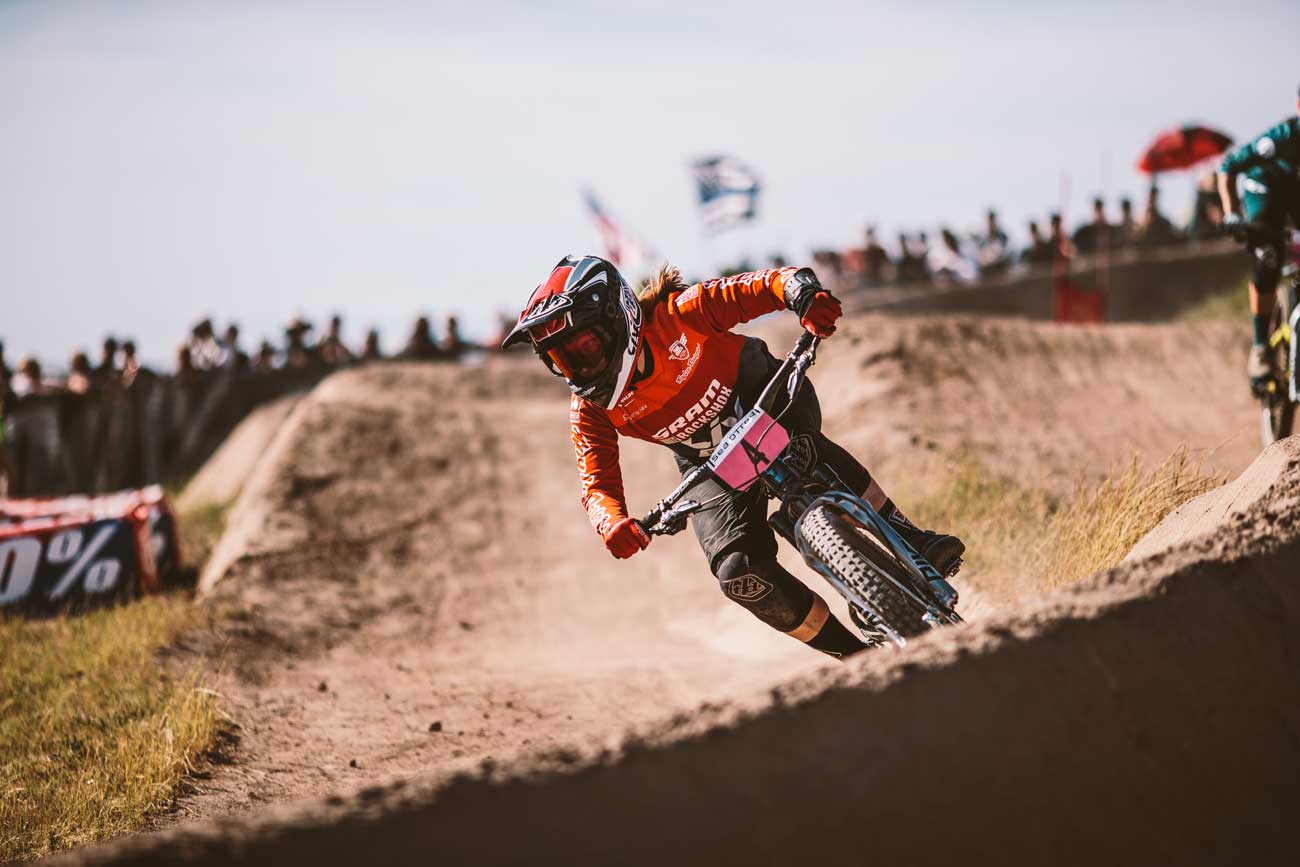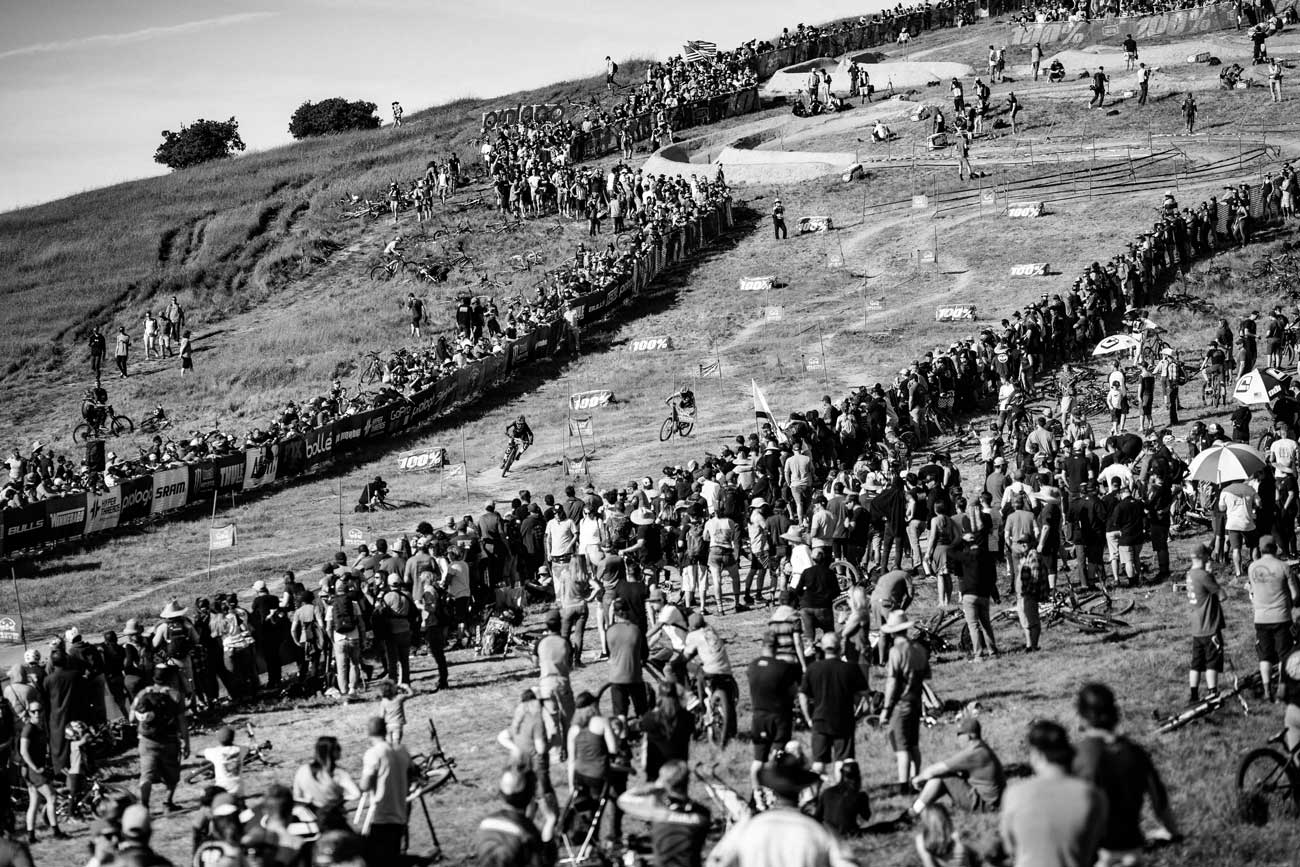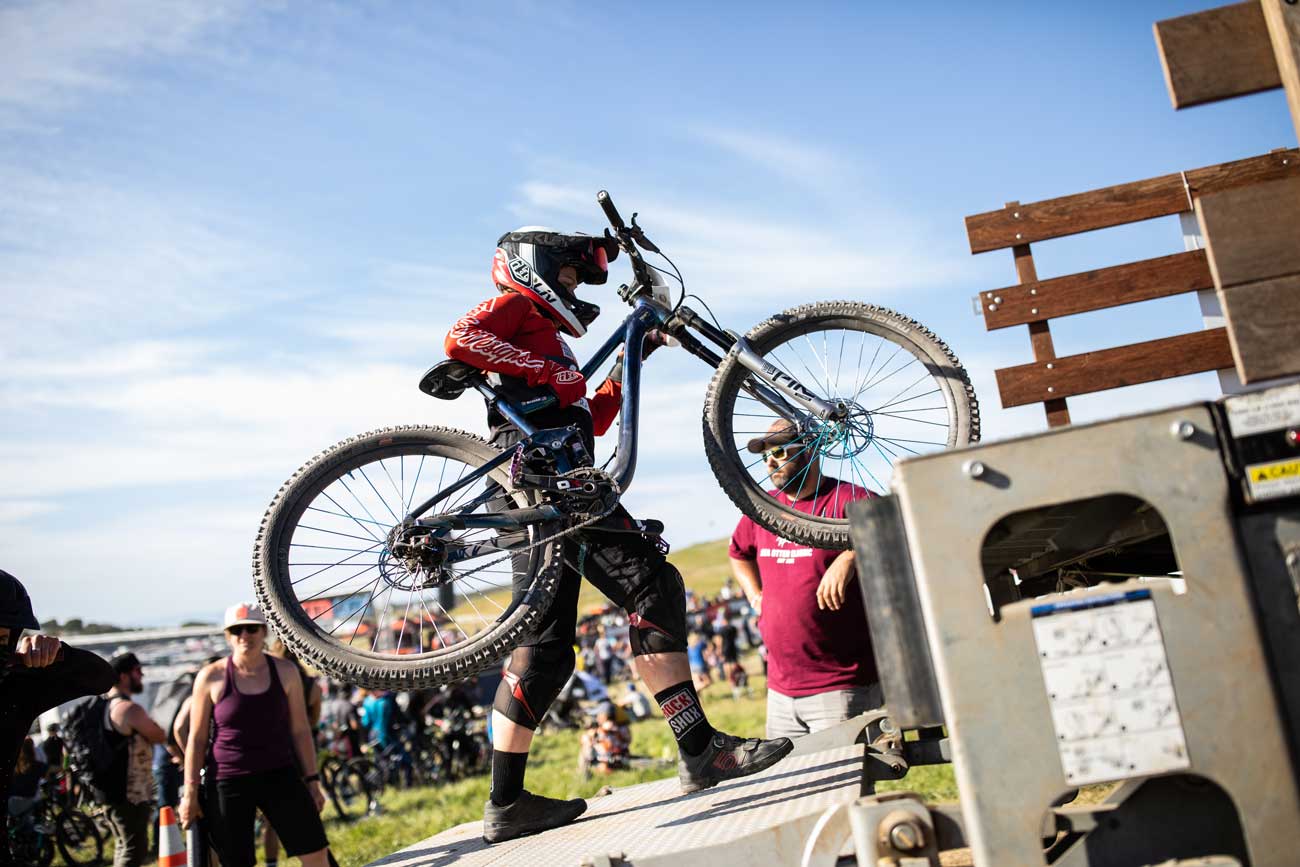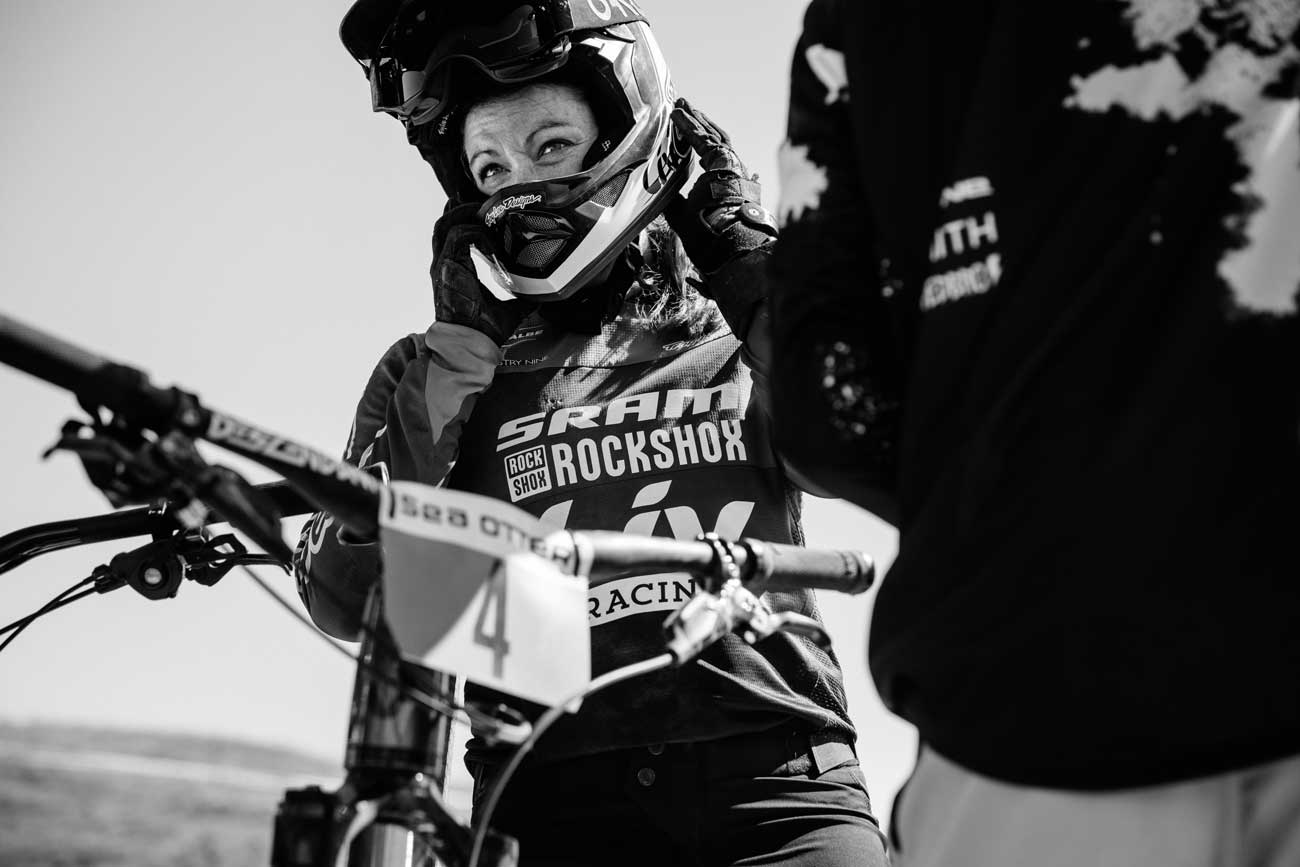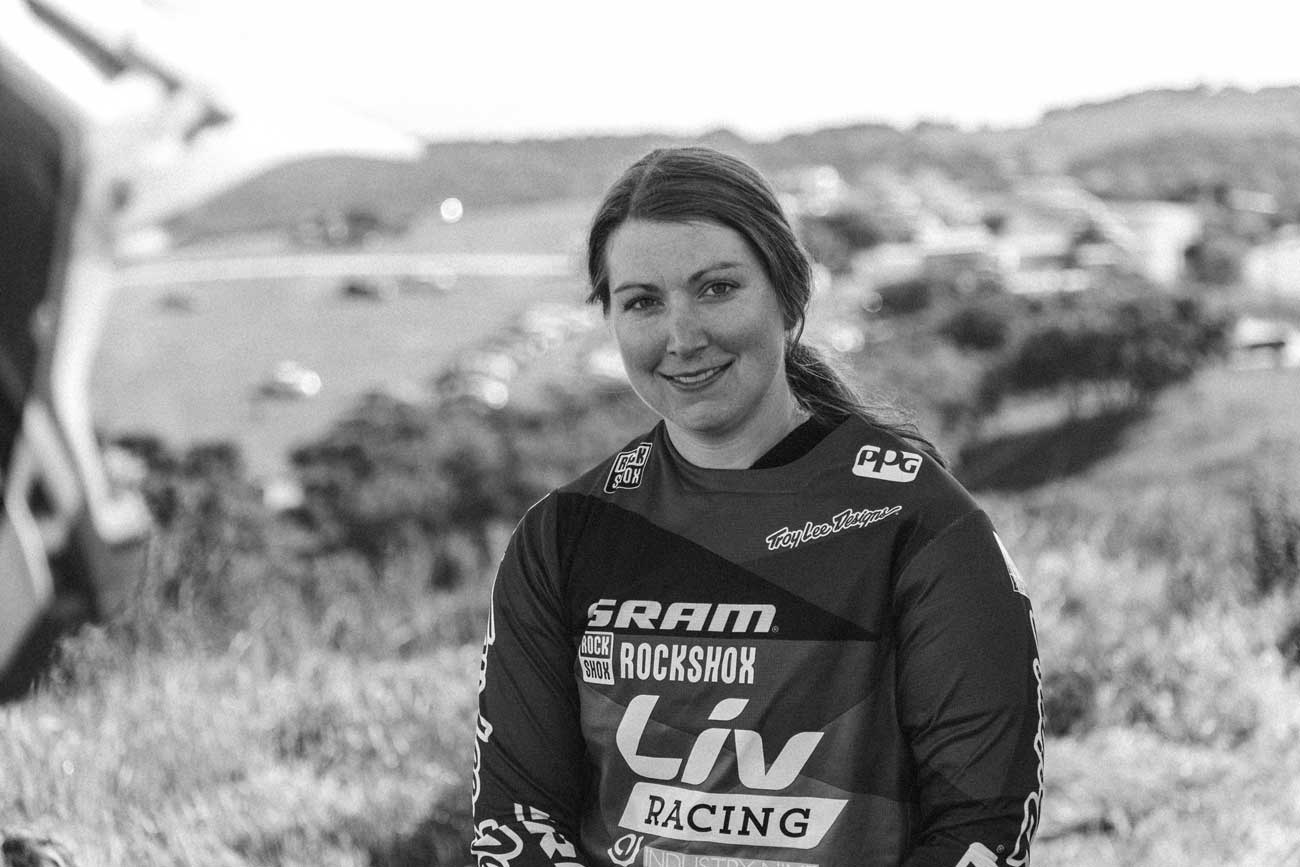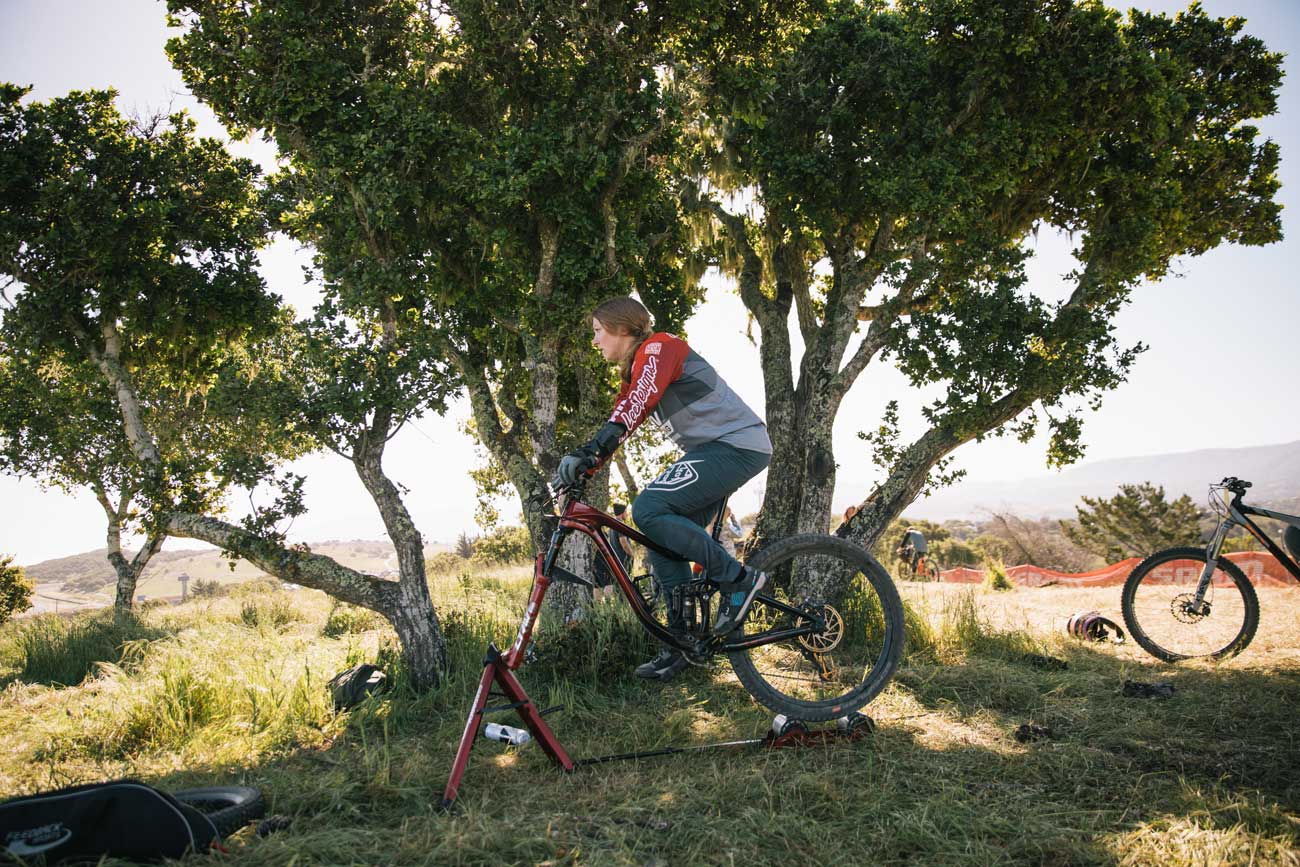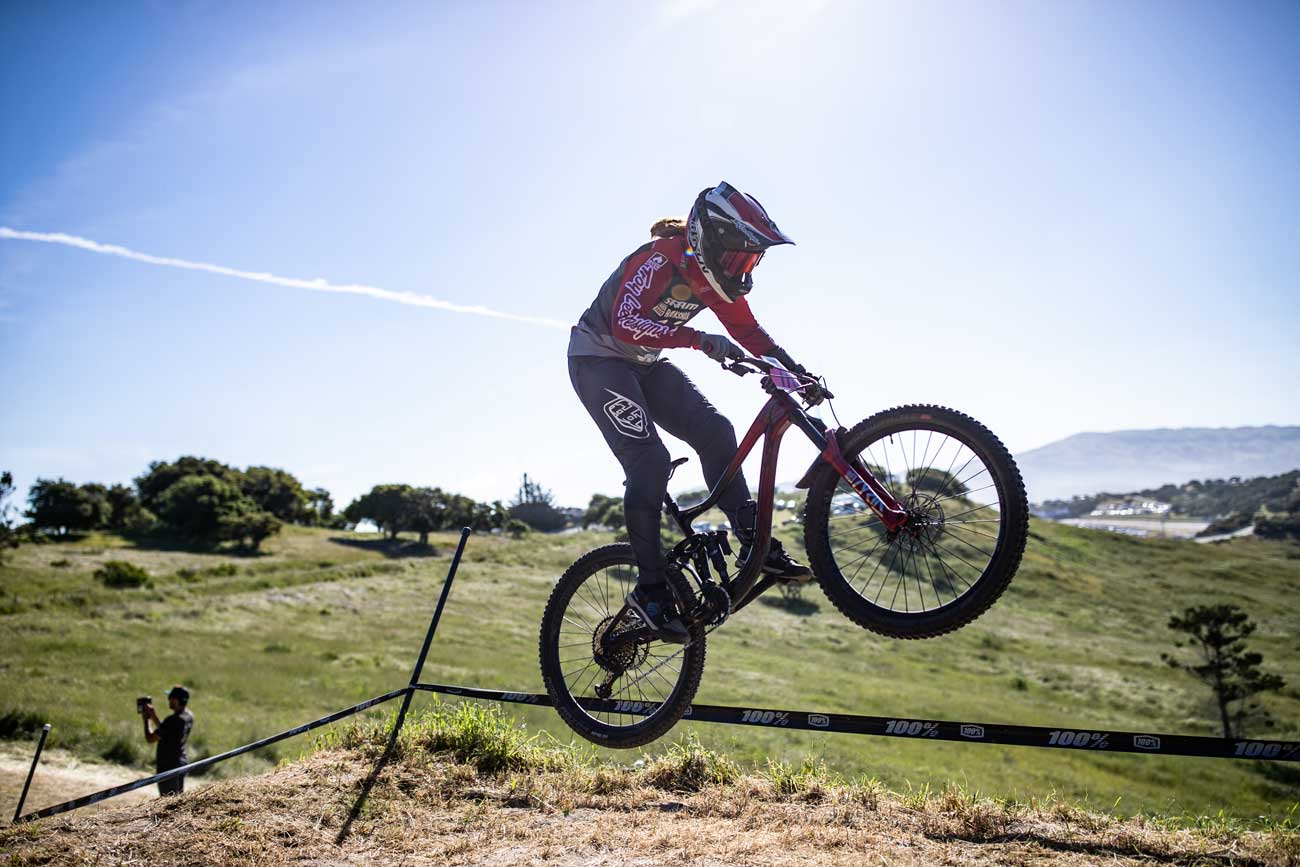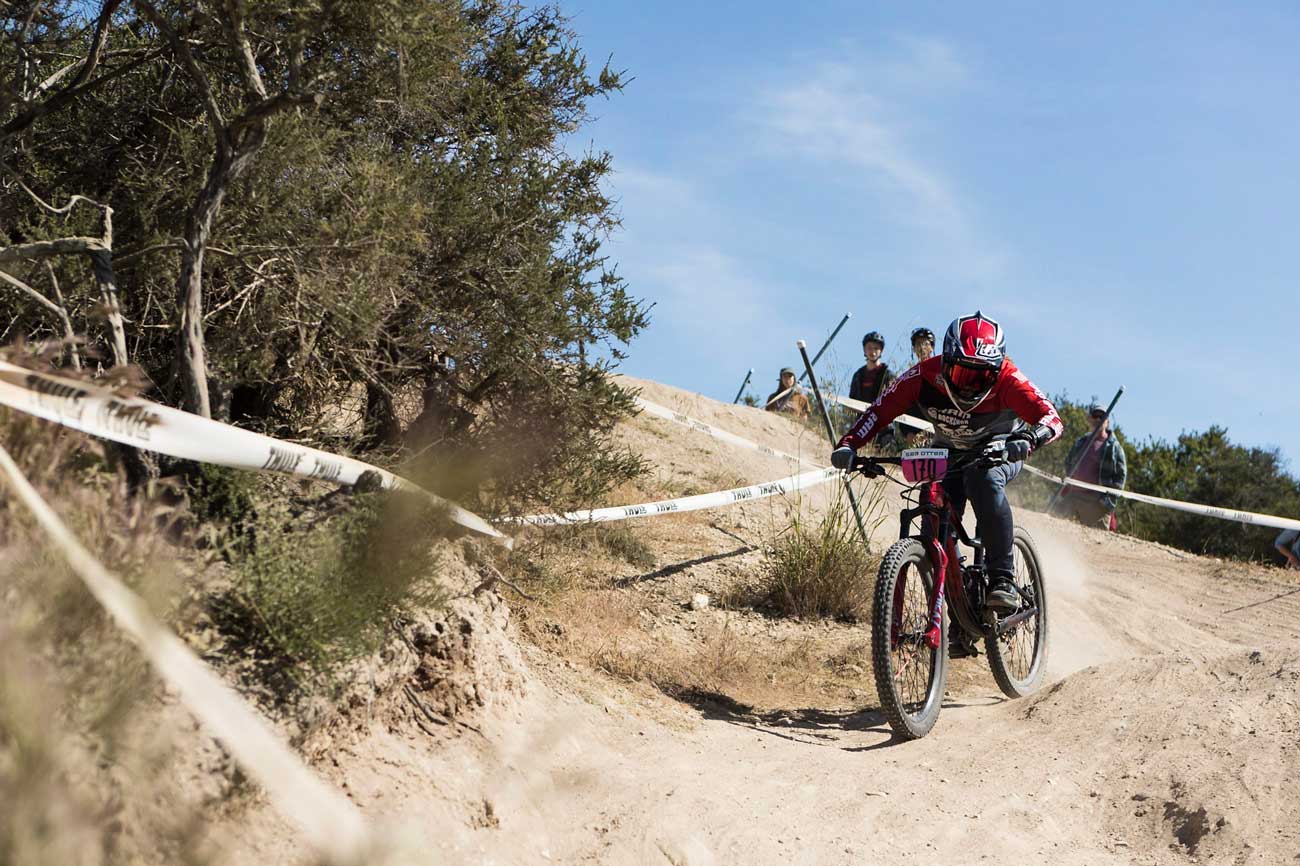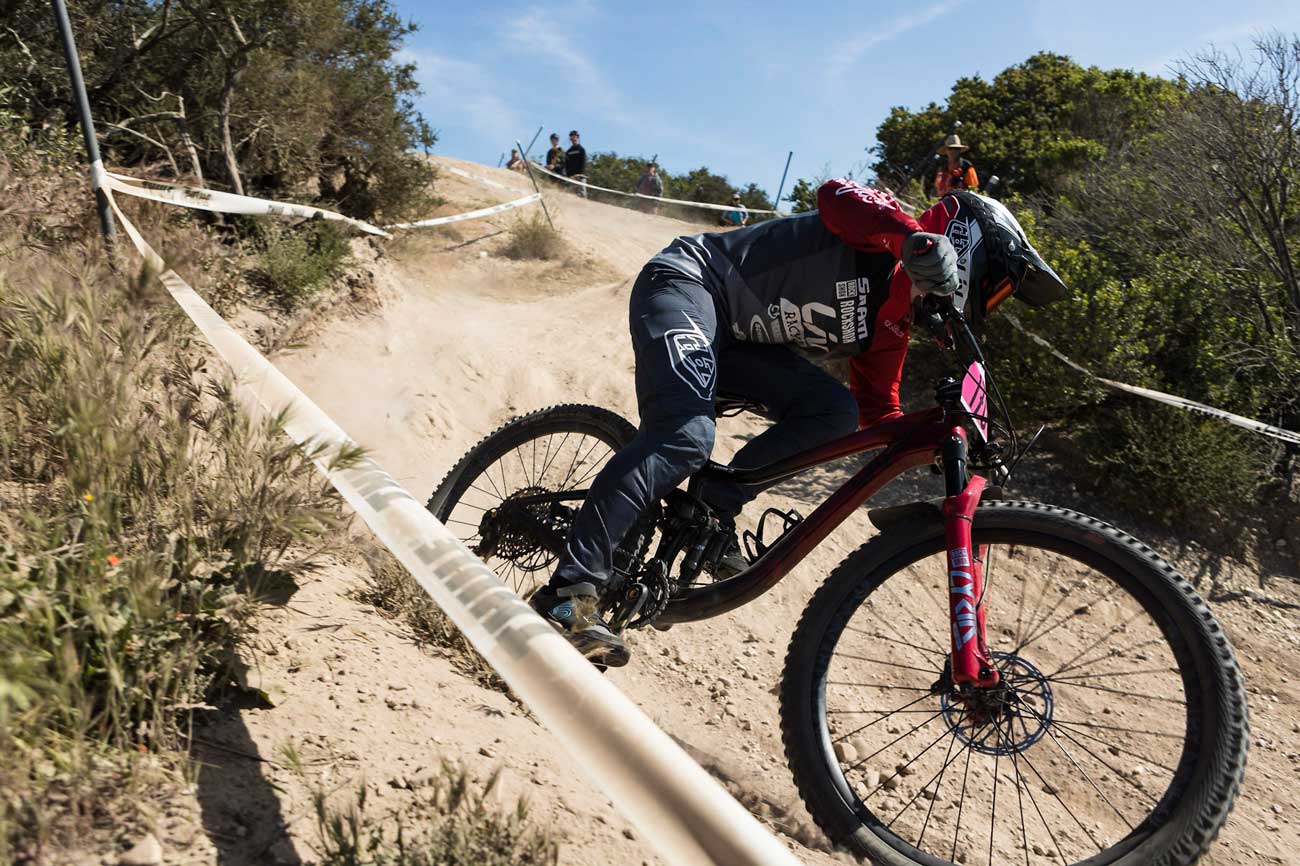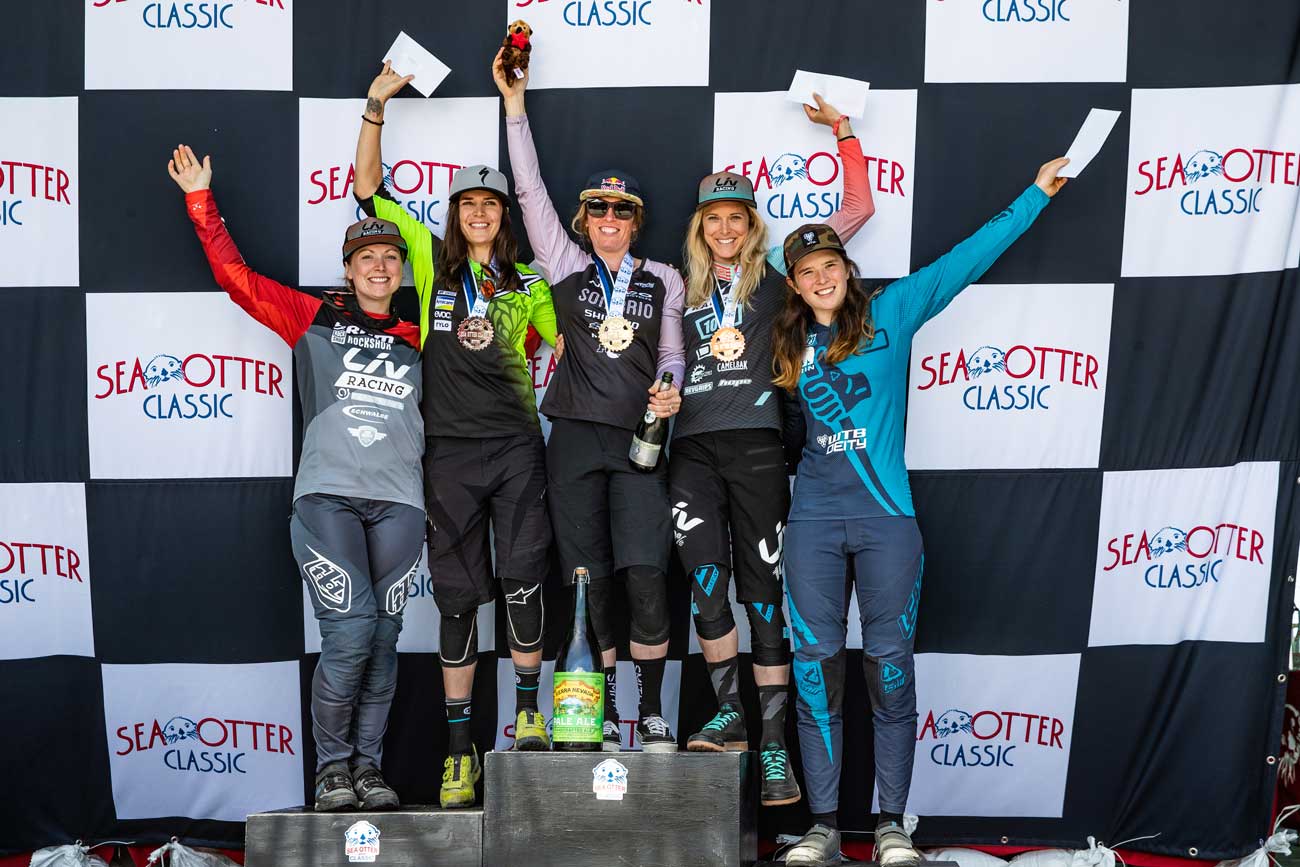When I dislocated my shoulder on March 30th during practice at the Windrock Downhill Southeast race, I allowed myself 10 minutes to cry. I got in my van after a quick stop at the Oak Ridge Hospital, angry the doctor didn’t even know how to put on my sling; angry my copay for a trip to the emergency room is a ridiculous $400; angry I fell in the first place. I said out loud, “It’s ok to cry.” And I did.
10 minutes later, I had a plan: I would do everything in my power to see my orthopedist first thing on Monday morning… and I would still leave in four days for Port Angeles, Washington.
On Monday morning before walking out the door to see Dr. Stanley (I was worked in immediately thanks to my “frequent flyer” status at OrthoCarolina), I gave myself a bit of confidence by raising my left arm with my right arm to a position where it could assist me in tumbling my hair into a messy bun. “I think I’ll live,” I thought to myself.
The medical professional prognosis:
1. After a full dislocation, my labrum is at least partially torn.
2. The only way to know how badly my shoulder is injured would be an MRI.
3. The only reason to have an MRI is if I was considering surgery.
4. Any type of shoulder surgery would sideline me for months.
5. No surgery… well, then PT the hell out of it and manage the pain.
I took it as good news. The next day, I packed and shipped my dual slalom bike to my hotel at Sea Otter Classic and put my downhill bike in a bag. I wasn’t sure if I would race the PRO GRT in Port Angeles, but I at least wanted to see if I could ride. In my head, I refused to sit out Sea Otter.
The body is an amazing thing, but what I have discovered over the last few weeks is the mind is even more amazing. The days following my injury could have gone so many different ways – I am convinced my ability to not just ride, but also race and podium a week after dislocating my shoulder was 100 percent mental. Here’s what worked for me:
Focused recovery – From the moment I hit the dirt and realized something was wrong, I was immediately committed to recovery. For me, this isn’t always the case. If my head isn’t in it, I will half-ass my PT, eat crap food, and wallow in self-pity. Not this time. I focused on mobility from day one and did my therapy exercises at least twice a day, I used my portable TENS unit on the airplane and every morning in PA, I iced my shoulder twice a day, and ate amazing, healthy food for breakfast, lunch, and dinner at the AirBNB I shared with two incredibly positive and helpful roommates. Yes, it still hurt. But, I improved my range of motion and, combined with the use of a pretty intense shoulder brace, increased my stability enough to feel comfortable on the bike.
Zero pressure – It’s never been more obvious that the only person putting pressure on me at races is me. I took a look around and realized if I didn’t race or raced and didn’t do well, no one would fault me for it. I decided to race because I loved the track and I seriously love what I do.
Fun is number one – It’s crazy that you have to hurt yourself sometimes to learn important lessons. Getting wrapped up in performance-based goals and self-expectations, it’s so easy to forget why I’m even racing in the first place. Playing in the rain in Port Angeles, I felt so grateful just to be there that “have fun” became my mantra for the weekend. During both seeding and my race run, I repeated that mantra over and over. I even cracked a wide, goofy grin underneath that full face helmet a couple times during a timed run. It’s been a while since that has happened.
Confidence – As a racer, you always know in the back of your head how important confidence is to performance. But, that doesn’t make confidence any easier to find. It’s also incredibly easy to lose your confidence after a fall, which is why I surprised myself so much by finding confidence in Port Angeles. I didn’t feel strong, but for the first time at a race… I think ever… I told myself I didn’t have to feel my best to do well. I gave myself permission to not attempt the difficult hucks with harsh landings. I added, “stay smooth,” to my race run mantra because I knew smooth would keep my shoulder safe and it could just be good enough to get on the box.
In another week after Port Angeles, I was in the start gate at the Sea Otter Dual Slalom. You know everything I just said about all the awesome stuff I learned about getting my mental game right – well, I hadn’t exactly processed all that in time for Sea Otter.
I tried using my same mantra – “Stay smooth, have fun,” and it worked for qualifying. Even feeling a bit slow and not quite comfortable on the track, I managed to seed fourth. But, when it came time for my first tight match-up, my head started to back out of the race. I found myself thinking negative thoughts like, “She’s fast, it would be ok if you lost to her.” When I said my mantra in the gate, I didn’t believe it. My first run in the match up, I was late in every turn and couldn’t find my rhythm. I crossed the finish line 1.2 seconds back. I knew I had to go for it the second round and I was feeling better until I pushed too hard in the last crucial corner and went down. It was strange though, crashing was almost a relief. It’s taken almost two weeks for me to figure out what my problem was – I didn’t want to win. I was playing the blame game before I even started the race and telling myself that slalom would hurt my shoulder and because of that, I was riding tight. But looking back, if I had a better mindset, I wouldn’t have let myself sink into negativity. I was completely capable of achieving my best result in that race.
The next day for the Sea Otter Downhill I changed up my race run mantra to, “You want this. Get it.” I took the race seriously. I even brought my Feedback Omnium trainer to the top of the hill and focused on a solid warmup before my run. That positive voice in my head pushed me to perform even when my legs wanted to stop and didn’t give me the chance to have a negative thought. Regardless of what my finish was, I could have looked back at that race run and been happy with it, just like Port Angeles. And just like Port Angeles, that run put me on the podium.
So yeah, it might sound cliché or like a bunch of fluff – but it’s not. What you tell yourself on the bike will absolutely affect how you ride. And that doesn’t just go for racing, it’s true for everything. That techy climb that you always get off for, just think, “Go, go, go,” instead of, “I can’t.” That drop you’ve always wanted to hit but always choose the go-around for at the last second, stop saying, “Maybe next time…” and tell yourself you can do it (heck, grab a friend to cheer you on and help boost your confidence). That section of the local XC loop you always huff and puff through, put an end to the negative self-talk about how tired and sweaty you are and how much your legs hurt and give yourself a Dory (from Finding Nemo) pep talk – just keep pedaling, just keep pedaling, pedaling, pedaling!
You are what you think.
Jeff Clark Photography.

